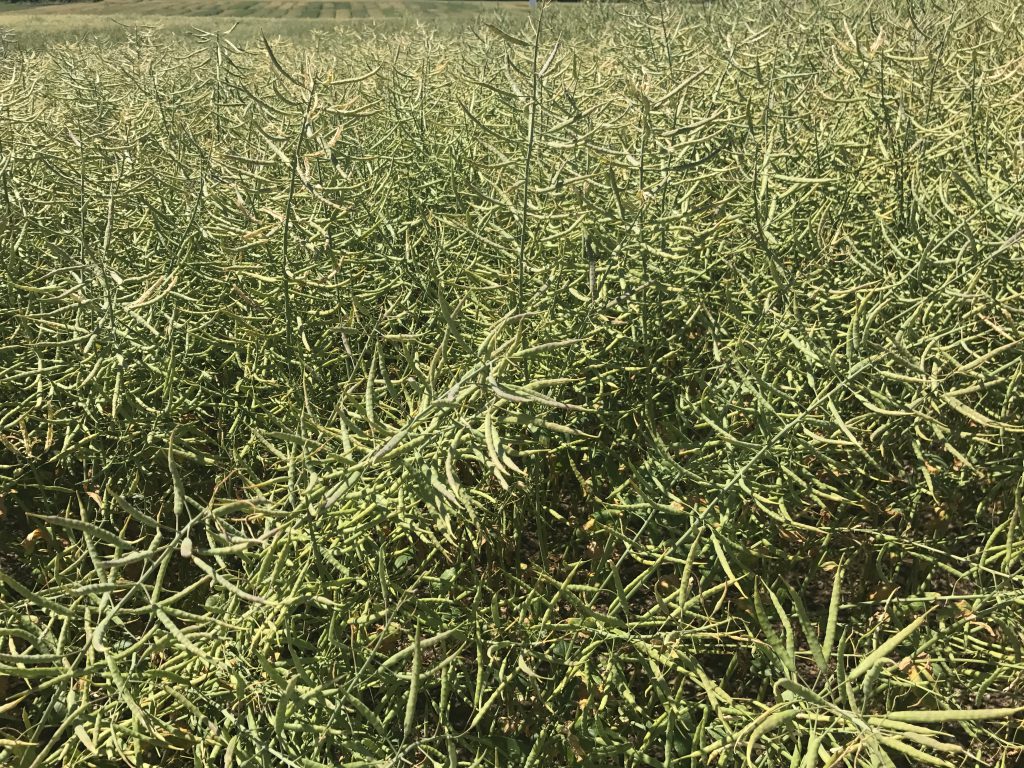Azole fungicides are becoming less effective in the fight against phoma leaf spot and stem canker in crops of oilseed rape (OSR).
This is the latest information emerging from Rothamsted Research in the UK which follows on from a series of laboratory-based trials.
In essence, the fungal species that cause phoma leaf spot and stem canker in OSR crops are showing decreased sensitivity to some chemical controls.
In turn, this is sparking concerns for growers in western Europe, according to Rothamsted-based scientists.
Azole fungicides
The diseases in question damage brassicas and are caused by two fungal species: P. lingam (Leptosphaeria maculans) and P. biglobosus (L. biglobosa).
Currently, a range of fungicides are used for control, but azoles (known as DMIs) which act as inhibitors for a fungal enzyme, are fast becoming ineffective.
“Decreased DMI sensitivity has already emerged in Australian and eastern European P. lingam populations,” confirmed plant pathologist, Dr. Kevin King, who led the research.
“However, we are now seeing it in western Europe, which is very worrying.”
The Rothamsted study was based on in-vitro sensitivity testing.
Decreased DMI sensitivity was found in modern western European P. lingam isolates (collected 2022-2023) compared to baseline historical (1992-2005) isolates.
The genetic sequence identified as responsible for the change was associated with a 3-10 fold decrease in sensitivity to the DMIs tested.
In contrast to P. Lingam, however, the same genetic sequences were absent in modern western European P. biglobosus isolates (2021-2023), according to the research.
Dr. King continued: “To date, there is no evidence that sensitivity to other control agents is changing for either species.

“So, other fungicides such as pyraclostrobin or boscalid should remain effective for now. But relying too heavily on a smaller arsenal of chemicals may well generate more instances of resistance developing in future,” he added.
“More integrated pest control options that incorporate biological agents and different approaches to cultivation and cropping should be explored.”
Oilseed rape
These developments will be of direct interest to Irish OSR growers. Recent years have seen a significant increase in the area of rape grown.
From an agronomic perspective, OSR is regarded as a highly valuable inclusion within all tillage rotations.
Demand for rapeseed oil continues to increase. In addition, the residue from crushing represents a very valuable protein source for livestock.
There is no commercial rapeseed crushing plant on the island of Ireland at the present time. However, it is envisaged that plans to develop such a facility may be announced in the very near future.

